Egypt
About Andrew Cusack
 Writer, web designer, etc.; born in New York; educated in Argentina, Scotland, and South Africa; now based in London.
Writer, web designer, etc.; born in New York; educated in Argentina, Scotland, and South Africa; now based in London. read more
News
Blogs
Reviews & Periodicals
Arts & Design
World
France
Mitteleuropa
Knickerbockers
Argentina
The Levant
Africa
Cape of Good Hope
Netherlands
Scandinavia
Québec
India
Muscovy
Germany
Academica
Monolingual Limitations
I’m 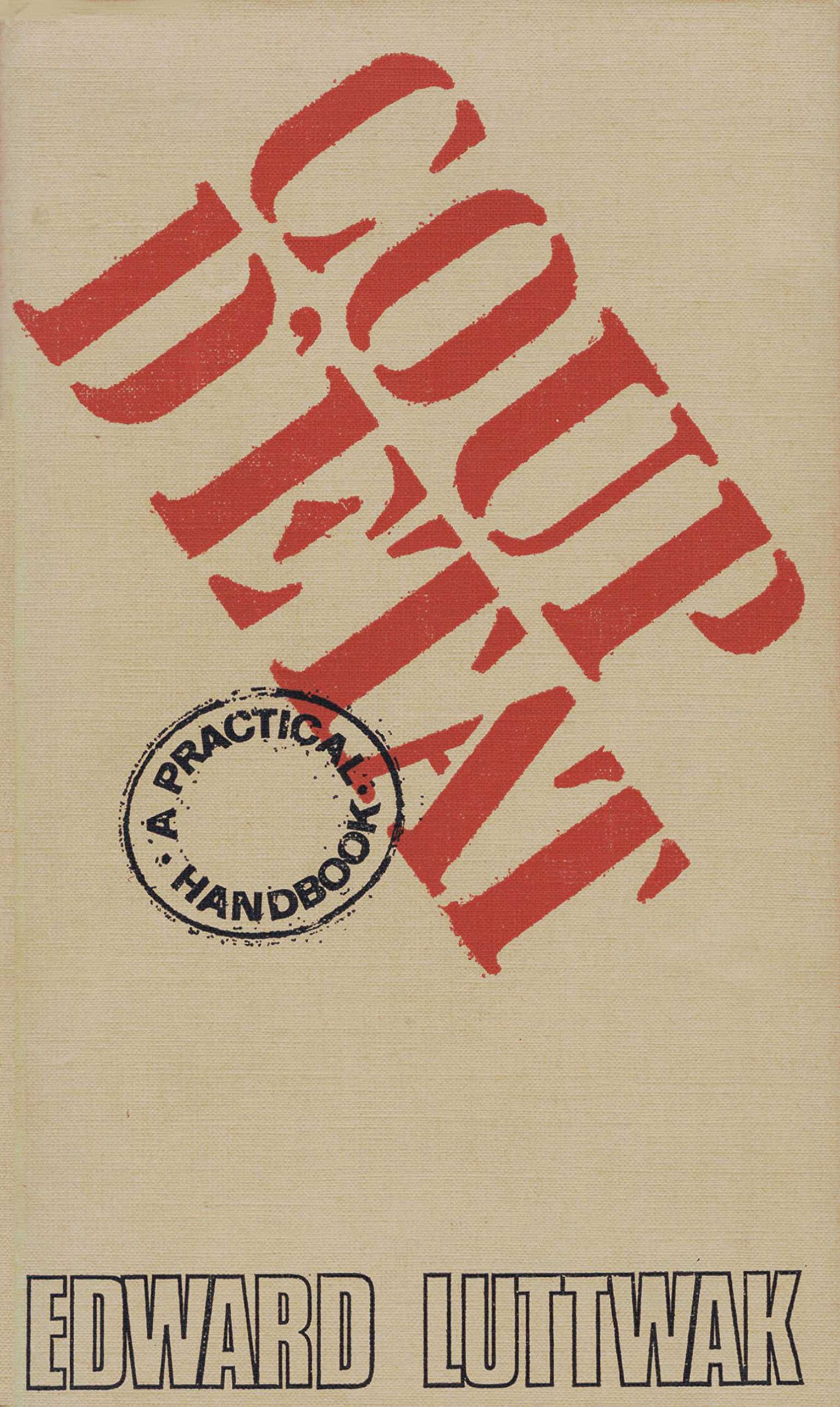 sure I wasn’t the only twelve-year-old whose favourite book was Edward Luttwak’s delicious Coup d’État: A Practical Handbook — an excellent gift from my father. The work gave me a lifelong fascination with the golpe de Estado, a phenomenon of government all too increasingly a rare species in our post-Cold War era.
sure I wasn’t the only twelve-year-old whose favourite book was Edward Luttwak’s delicious Coup d’État: A Practical Handbook — an excellent gift from my father. The work gave me a lifelong fascination with the golpe de Estado, a phenomenon of government all too increasingly a rare species in our post-Cold War era.
Just about everything written or said by Luttwak — lately a cattle farmer in Paraguay — is worth reading or listening to. For a start you could read his contributions to the LRB or to the excellent American Jewish Tablet magazine.
I have been waiting for someone to offer a refutation of his provocative Prospect essay on how the Middle East is less relevant than ever, and it would be better for everyone if the rest of the world learned to ignore it.
David Samuels chat with Luttwak this month on the subject of the Three Blind Kings — Putin, Biden, and Xi — offers some superb insights as well as amusements.
Among the lessons that Luttwak is keen to drive home — and he says so over and over and over again on Twitter — is that American intelligence-gathering (and government in general) is too reliant on technology with too few officials, analysts, and operatives actually learning the language of those they are attempting to surveil.
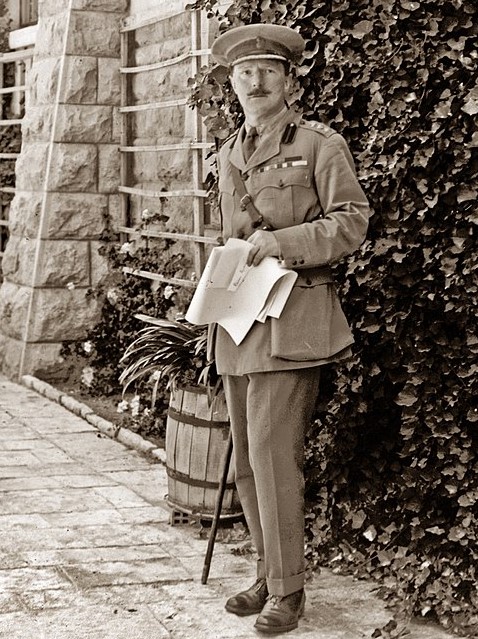 That this state of monolingual limitation was not always the case was driven home in an excellent piece by Jonathan Gaisman in the February 2022 New Criterion concerning Sir Ronald Storrs (left, 1881–1955) — “the most brilliant Englishman in the Near East” as Lawrence of Arabia called him.
That this state of monolingual limitation was not always the case was driven home in an excellent piece by Jonathan Gaisman in the February 2022 New Criterion concerning Sir Ronald Storrs (left, 1881–1955) — “the most brilliant Englishman in the Near East” as Lawrence of Arabia called him.
An accomplished Arabist, Storrs served as Oriental Secretary for the British administration in Egypt before going on to become Military Governor of Jerusalem, Governor of Cyprus, and Governor of Northern Rhodesia, from which role he retired on health grounds, returned to the metropole, and served a few years on London County Council.
Gaisman relays this delicious anecdote from the British official’s 1937 autobiography Orientations:
Sometime in 1906 I was walking in the heat of the day through the Bazaars. As I passed an Arab café an idle wit, in no hostility to my straw hat but desiring to shine before his friends, called out in Arabic, “God curse your father, O Englishman.”
I was young then and quicker-tempered, and foolishly could not refrain from answering in his own language that I would also curse his father if he were in a position to inform me which of his mother’s two and ninety admirers his father had been.
I heard footsteps behind me and slightly picked up the pace, angry with myself for committing the sin [of] a row with Egyptians. In a few seconds I felt a hand on each arm. “My brother,” said the original humorist, “return, I pray you, and drink with us coffee and smoke. I did not think that Your Worship knew Arabic, still less the correct Arabic abuse, and we would fain benefit further by your important thoughts.”
Gaisman further spoils us with another excellent story — this time about Storrs’ predecessor as Oriental Secretary in Cairo, Mr Harry Boyle:
[Boyle] was taking his tea one day on the terrace of Shepheard’s Hotel when he heard himself accosted by a total stranger: “Sir, are you the Hotel pimp?”
“I am, Sir,” Boyle replied without hesitation or emotion, “but the management, as you may observe, are good enough to allow me the hour of five to six as a tea interval. If, however, you are pressed perhaps you will address yourself to that gentleman,” and he indicated [the self-made tea magnate] Sir Thomas Lipton, “who is taking my duty; you will find him most willing to accommodate you in any little commissions of a confidential character which you may see fit to entrust to him.”
Boyle then paid his bill, and stepped into a cab unobtrusively, but not too quickly to hear the sound of a fracas, the impact of a fist and the thud of a ponderous body on the marble floor.
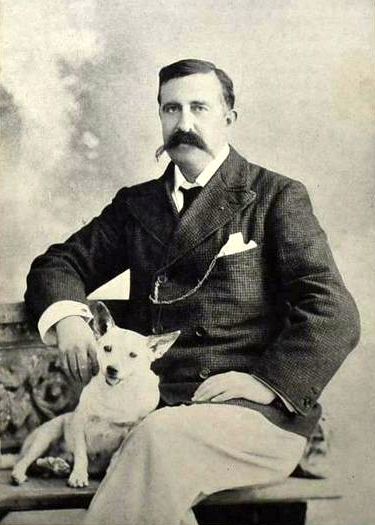 Boyle’s 1937 obituary in the Palestine Post noted he was “a gifted linguist, speaking no fewer than twelve languages”. When Lord Cromer was Britain’s proconsul in Egypt, he and Boyle were such frequent perambulators along the Nile that Boyle earned the nickname Enoch, for he “walked daily with the Lord”.
Boyle’s 1937 obituary in the Palestine Post noted he was “a gifted linguist, speaking no fewer than twelve languages”. When Lord Cromer was Britain’s proconsul in Egypt, he and Boyle were such frequent perambulators along the Nile that Boyle earned the nickname Enoch, for he “walked daily with the Lord”.
During these walks, Cromer was keen to mix with Egyptians of the most humble backgrounds and was aided by Boyle’s linguistic skills. Such was his excellence in Arabic that, returning to Egypt many years later, Boyle was recognised by a peasant farmer many miles outside of Cairo and warmly embraced as the man who used to walk the Nile with the British lord.
“In the hot and brooding nights of the Egyptian summer,” the Post appreciation also relates, “when all who were at liberty to do so had fled to cooler climes, Cromer and Harry Boyle might often have been seen seated after dinner on the veranda of the Agency in Cairo reading aloud alternately passages from the Iliad.”
Perhaps all is not lost. While I can’t speak for the state of the gift of tongues at Langley, at least the Prime Minister of the United Kingdom can launch into Homer, in Greek, from memory.
But Luttwak would surely be right to retort that it is among the mid-level officials and analysts that linguistic skills are most missing — nor are we currently threatened by Athens, Sparta, or Corinth.
Nahum Effendi and Cairo’s Lost World
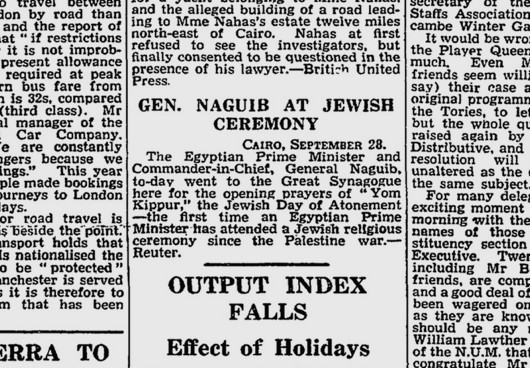
Stumbling across the newspaper clipping above was a sad reminder of a lost world. Taken from the front page of the Manchester Guardian of Monday 29 September 1952, it describes the Egyptian leader General Naguib attending a Yom Kippur service just two months after the coup that overthrew the country’s monarchy. None of the Jewish places of worship in Cairo are known as the “Great Synagogue”, so I presume this must have been the Adly Street Synagogue (Sha’ar Hashamayim).
The Chief Rabbi of the Sephardic community in Egypt at the time would have been Senator Rabbi Chaim Nahum Effendi. A creature of the Ottoman world, Rabbi Nahum was born in Smyrna in Anatolia, went to yeshiva in Tiberias on the Sea of Galilee, and finished his secondary education in a French lycée.
After earning a degree in Islamic law in Constantinople, he started his rabbinic studies in Paris while also studying at the Sorbonne’s School of Oriental Languages. Returning to Anatolia he was appointed the Hakham Bashi, or Chief Rabbi, of the Ottoman empire in 1908 and honoured with the title of effendi.
After that empire collapsed, Rabbi Nahum was invited to take up the helm of the Sephardic community in Egypt in 1923. A natural linguist and a gifted scholar, the chief rabbi’s talents were apparent to all, and he was appointed to the Egyptian senate as well as being a founding member of the Royal Academy of the Arabic Language created to standardise Egyptian Arabic.
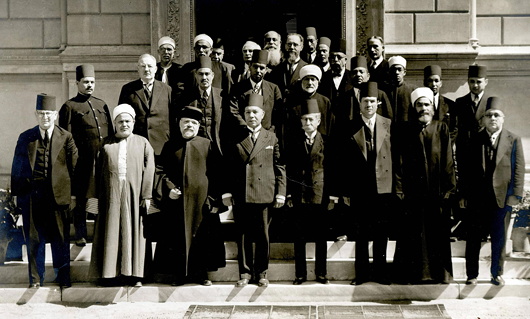
Rabbi Nahum (front row, third from left) at the foundation of Egypt’s Arabic academy.
The foundation of the State of Israel was a godsend for many Jews but spelled the beginning of the end for Egypt’s community. Zionists were a distinct minority among Egyptian Jews — many of whom were part of Egypt’s (primarily anti-British) nationalist movement — but Israel’s defeat of the Arab League in the 1948 War embarrassed Egypt’s ruling classes and stoked anti-semitism amongst the populace. Violent attacks against Jewish businesses were tolerated by the authorities and went uninvestigated by the police. Unfounded allegations of both Zionism and treason were rife, and discriminatory employment laws were introduced.
The 1952 Revolution did not improve things, as the tolerant but decaying monarchy was replaced by a vigorous but nationalist and pan-Arabist military government. Faced with such continuing depredations, the overwhelming majority of Jewish Egyptians fled — to Israel, Europe, and the United States. Rabbi Nahum eventually died in 1960, by then something of a broken man I imagine.
Cairo was once a thriving cosmopolitan city of Muslims, Christians, and Jews — and many communities of outside origin. The Greeks, who first arrived twenty-seven centuries ago and in 1940 still numbered tens of thousands, have all left. The futurist Marinetti was the most famous of the Italian Egyptians, whose numbers in the 1930s were numerous enough to warrant several branches of the Fascist party. Since the 1952 Revolution they are all gone too. Some Armenians remain, but not many. As for Jews, there are six left in Egypt.
Sic transit gloria mundi.
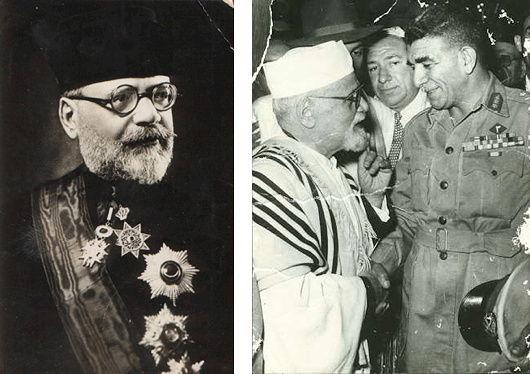
Search
Instagram: @andcusack
Click here for my Instagram photos.Most Recent Posts
- Burns Tower April 19, 2024
- Patrick in Parliament March 18, 2024
- Articles of Note: 13 March 2024 March 13, 2024
- Cambridge March 9, 2024
- Taken on Trust March 4, 2024
Most Recent Comments
Book Wishlist
Monthly Archives
Categories


